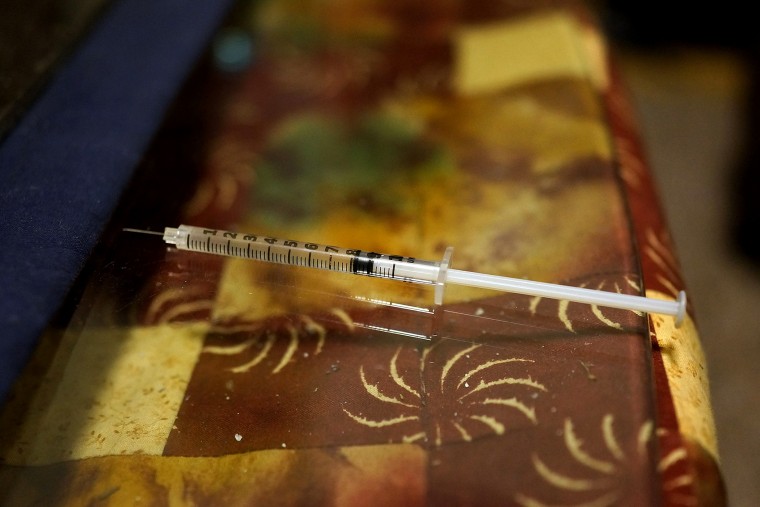It didn't get a whole lot of attention yesterday, but Democratic presidential candidate Hillary Clinton unveiled
a $10 billion plan to combat substance abuse, and by all appearances, it's a serious approach, prioritized after Clinton heard from voters who emphasized its importance in their own families' lives.
Clinton's plan calls for treating addiction as a public health issue, rather than a law enforcement one, and pledges more resources for treatment and recovery programs. That includes giving all first responders access to naloxone, a drug that can save the lives of people in the midst of an opioid overdose. [...] Clinton also calls for better training for prescribers, to limit prescriptions to addictive drugs like OxyContin. Clinton's plan would devote $7.5 billion in federal-state partnerships to build up local treatment programs, with a potential federal match of $4 for every $1 a state invests.
The release of the plan coincided with a new Clinton
op-ed on the subject published in New Hampshire, and a
post on Medium in which the campaign shared personal stories from Americans who've struggled with addiction and substance disorders.
Rand Paul argued in New Hampshire Wednesday that the heroin epidemic in the United States could be solved in part by putting people back to work. "People always come up to me and say, 'We got heroin problems and all these other problems.' You know what? If you work all day long, you don't have time to do heroin," the Kentucky senator said to applause while holding a meet-and-greet at the Airport Diner in Manchester.
You've got to be kidding me.
We already know, as a factual matter, that Rand Paul is wrong. The evidence is simply undeniable that in much of the country, heroin abuse affects communities large and small, rich and poor, black and white. To simply assume that the crisis applies only to the unemployed is ridiculous.
And for Paul -- a medical doctor who
claims to have an expertise on a variety of public-health issues -- to make these comments in New Hampshire, where unemployment is low but overdoes rates are high, is equally bizarre.
But it's the juxtaposition that's especially striking. On the same day Hillary Clinton treats the issue with real substance and care, Rand Paul's answer is, in effect, "Get a job."
It's another chapter in the broader post-policy tale.
